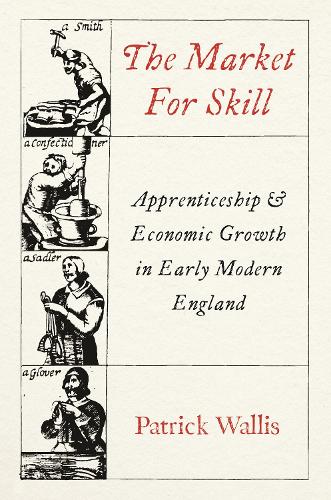
The Market for Skill: Apprenticeship and Economic Growth in Early Modern England
(Hardback)
Publishing Details
The Market for Skill: Apprenticeship and Economic Growth in Early Modern England
By (Author) Patrick Wallis
Princeton University Press
Princeton University Press
11th June 2025
United States
Classifications
Tertiary Education
Non Fiction
Political economy
Industry and industrial studies
Physical Properties
Hardback
480
Width 156mm, Height 235mm
Description
How apprenticeship shaped the English economy
Apprenticeship dominated training and skill formation in early modern Europe. Years spent learning from a skilled master were a nearly universal experience for young workers in crafts and trade. In England, when apprenticeship reached its peak, as many as a third of all teenage males would serve and learn as apprentices. In The Market for Skill, Patrick Wallis shows how apprenticeship helped reshape the English economy.
Some historians see apprenticeship as a key ingredient in the industrial revolution; others agree with Adam Smith in seeing it as wasteful and conservative. Wallis shows that neither of these perspectives is entirely accurate. He offers a new account of apprenticeship and the market for skill in England, analyzing the records of hundreds of thousands of individual apprentices to tell the story of how apprenticeship worked and how it contributed to the transformation of England. Wallis details the activities of apprentices and masters, the strategies of ambitious parents, the interventions of guilds and the decisions of town officials. He shows how the system of early modern apprenticeship contributed to the growth of cities, the movement of workers from farms to manufacturing and the spread of new technologies and productive knowledge.
In this groundbreaking study, Wallis argues that apprenticeship succeeded precisely because it was a flexible institution which allowed apprentices to change their minds and exit contracts early. Apprenticeship provided a vital channel for training that families could trust and that was accessible to most young people, whatever their background.
Author Bio
Patrick Wallis is professor of economic history at the London School of Economics and the coeditor of Apprenticeship in Early Modern Europe.
